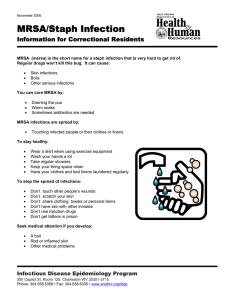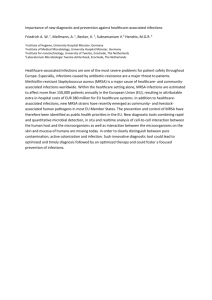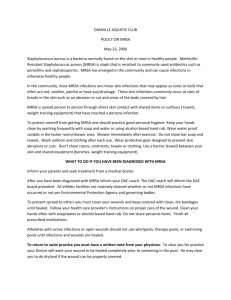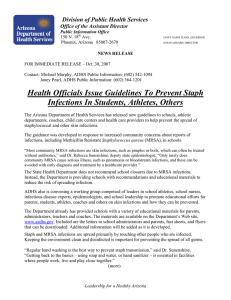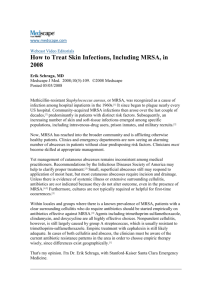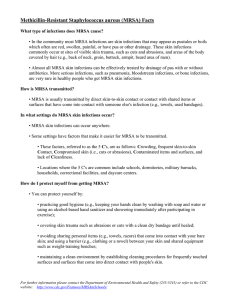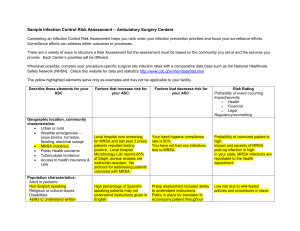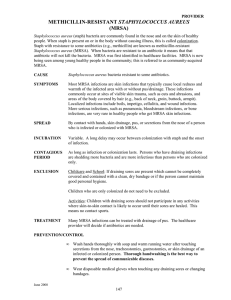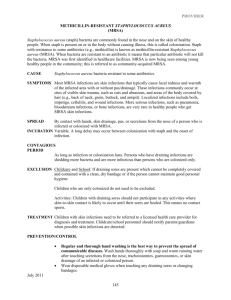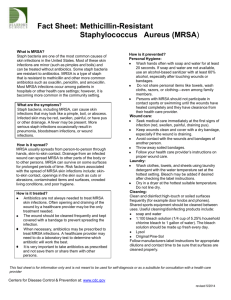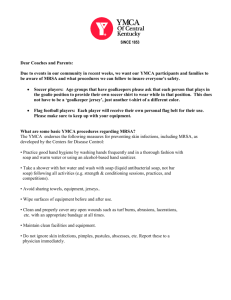Outpatient management of skin and soft tissue infections specifically
advertisement
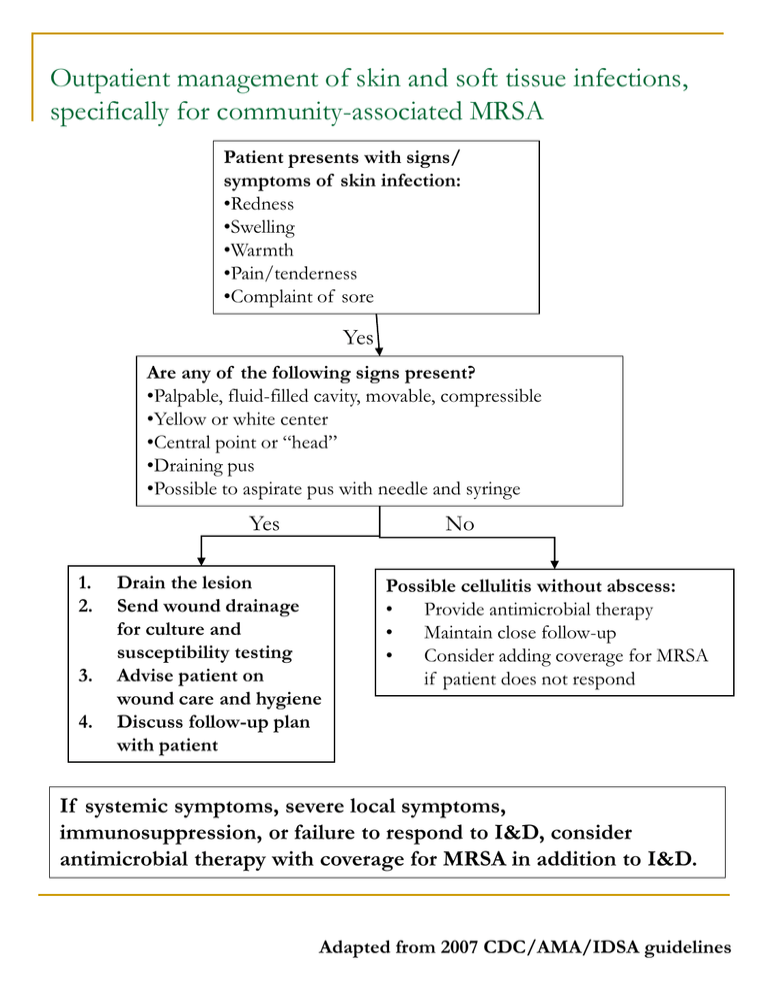
Outpatient management of skin and soft tissue infections, specifically for community-associated MRSA Patient presents with signs/ symptoms of skin infection: •Redness •Swelling •Warmth •Pain/tenderness •Complaint of sore Yes Are any of the following signs present? •Palpable, fluid-filled cavity, movable, compressible •Yellow or white center •Central point or “head” •Draining pus •Possible to aspirate pus with needle and syringe Yes 1. 2. 3. 4. No Drain the lesion Send wound drainage for culture and susceptibility testing Advise patient on wound care and hygiene Discuss follow-up plan with patient Possible cellulitis without abscess: • Provide antimicrobial therapy • Maintain close follow-up • Consider adding coverage for MRSA if patient does not respond If systemic symptoms, severe local symptoms, immunosuppression, or failure to respond to I&D, consider antimicrobial therapy with coverage for MRSA in addition to I&D. Adapted from 2007 CDC/AMA/IDSA guidelines Options for empiric outpatient antimicrobial treatment of SSTIs when MRSA is a consideration NOTE: Data from controlled clinical trials are needed to establish the comparative efficacy of these agents in treating MRSA SSTIs. Patients with signs/symptoms of severe illness should be treated as inpatients. Drug Name Considerations Precautions Clindamycin FDA-approved to treat serious infections due to S. aureus D-zone test should be performed to identify inducible clindamycin resistance in erythromycinresistant isolates C. Tetracyclines Doxycycline Minocycline Doxycycline is FDA-approved to treat S. aureus skin infections Not TrimethoprimSulfamethoxazole Not FDA-approved to treat any staph infection May Rifampin Use only in combination with other agents Drug-drug interactions are common Linezolid Consultation with an infectious disease specialist is recommended FDA-approved to treat complicated skin infections, including those caused by MRSA Difficile-associated disease, while uncommon, may occur more frequently in association with clindamycin compared to other agents recommended during pregnancy Not recommended for children under the age of 8 Activity against group A strep, a common cause of cellulitis, unknown not provide coverage for group A strep, a common cause of cellulitis Not recommended for women in the third trimester of pregnancy Not recommended for infants less than 2 months Has been associated with myelosuppression, neuropathy and lactic acidosis during prolonged therapy MRSA is resistant to all currently available beta-lactam agents (penicillins and cephalosporins) (e.g. ciprofloxacin, levofloxacin) and macrolides (erythromycin, azithromycine) are not optimal for treatment of MRSA SSTIs because resistance is common or may develop rapidly Fluoroquinolones Role of decolonization: Regimens intended to eliminate MRSA colonization should not be used in patients with active infections. After treating active infections and reinforcing hygiene and appropriate wound care, consider consultation with an infectious disease specialist regarding use of decolonization when there are recurrent infections in an individual patient or members of a household. Adapted from 2007 CDC/AMA/IDSA guidelines
